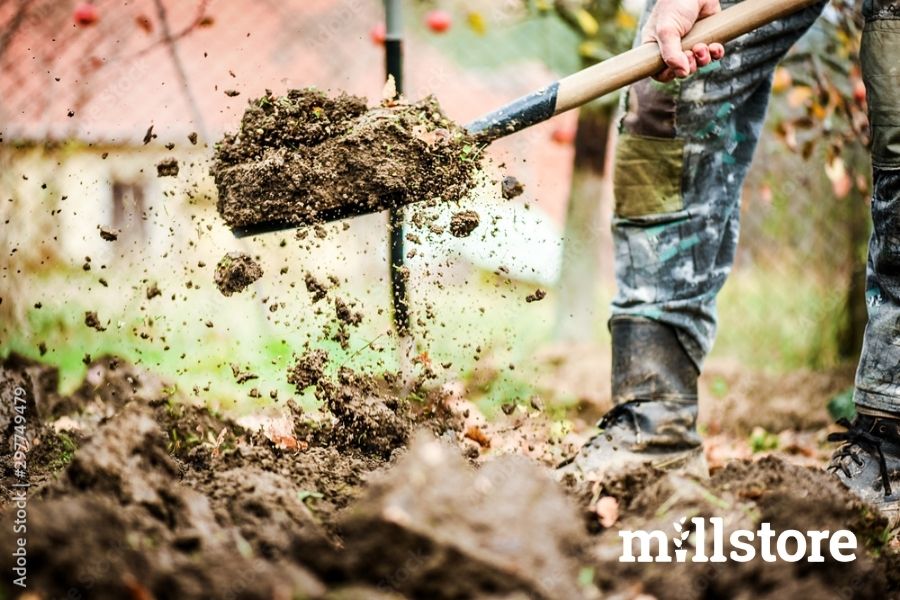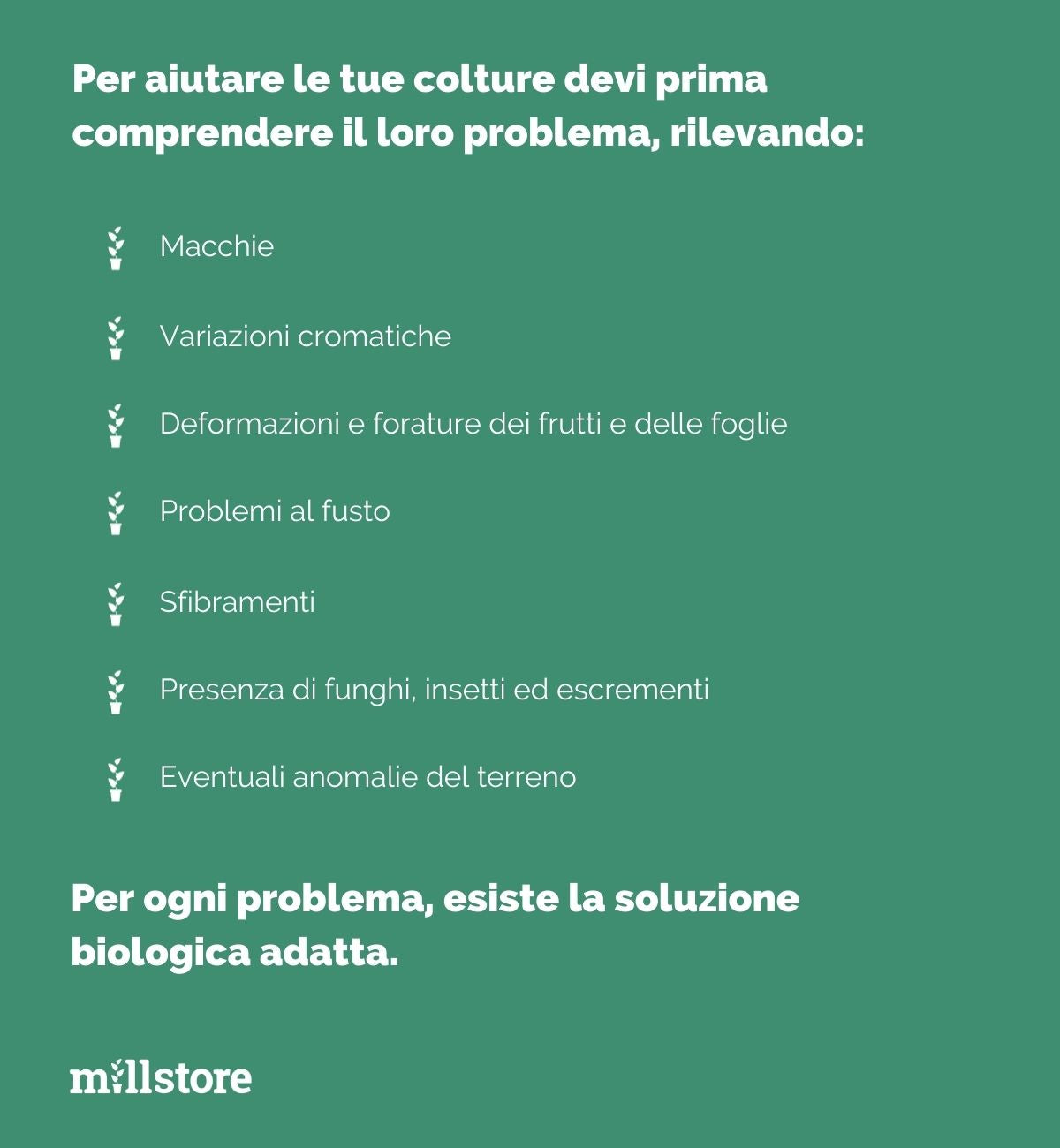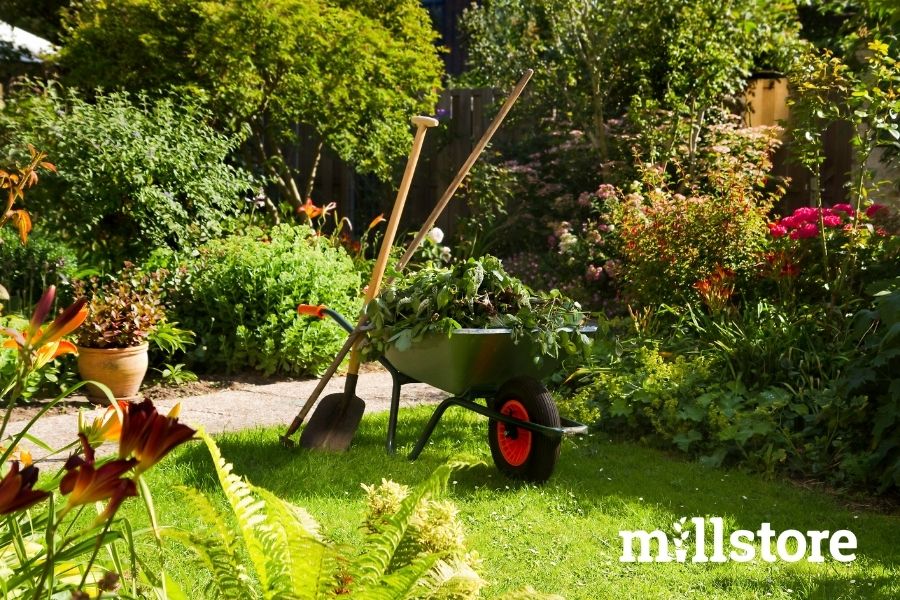As confirmed by numerous authoritative studies, growing and caring for a vegetable garden is fun, helps keep anxiety and stress under control, promotes a serene and healthy lifestyle and supports the development of cognitive abilities.
We are talking about a real therapy, called “orthotherapy” or “horticultural therapy” .
Quality time spent outdoors, the attention and care dedicated to working in the garden and the possibility of consuming quality products at km 0, grown according to nature.
This is how cultivating a vegetable garden and a garden brings numerous benefits to the mind and body .
By choosing to grow an organic garden , an eco-sustainable cultivation method and refusing the use of pesticides and other chemicals, you will make this activity beneficial not only for you, but also for the environment.
But how to grow an organic garden? How to get started? How to set up the garden to get a rich harvest?
And how to keep soil and plants healthy?
Here is some expert advice for growing and caring for a completely organic garden, the most important steps, the rules to follow and the products to use.
- Learn about soil type for optimal growth
- How to recognize the texture of the soil
- How to protect humus and why
- Use mulch to preserve humus - How to water your vegetable garden: techniques and tips
- How to Help Good Garden Bugs Do Their Job
- Why choose organic solutions against garden pathogens
- Observe and care for your garden regularly - Grow your garden with curiosity, passion and consistency
1. Learn about soil type for optimal growth
To start an organic garden you first need to evaluate the land at your disposal .
Only after this important step will you be able to select the type of watering, necessary processes and useful products to create an environment suitable for the growth of the crops you prefer.
How to recognize soil texture
The texture of the soil is the relationship between its solid components.
Simply put, when we talk about texture we are talking about the composition of the soil .
You may have a plot of land:
-
Sandy : light, permeable to water and air, capable of heating and cooling very quickly.
Poor in organic substance , sandy soil requires careful and specific fertilization .
-
Silty : A soil that is rich in humus , impermeable to water and air, it conserves water and nutrients for plants and the population of good insects and bacteria necessary for the growth of your crops.
Caution! Due to its waterproof nature, if it comes into contact with excessive water (for example after a storm), it creates a surface crust that makes it difficult for plants to germinate.
- Clay : Impermeable to water and air, it retains heat well and stores it slowly. Clay soil is the most fertile , although it requires particular effort in working it due to its compactness.

Even without laboratory analysis, you can, with a little care, determine the texture of your soil, using sight and touch.
Collect several soil samples and mix them all together in a container. Then take a portion of the mixture, moisten it with water and knead it well with your hands. Then observe.
- Sandy soil feels grainy to the touch and breaks apart easily.
- The loamy soil is silky and remains moist
- Clay soil becomes compact , can be shaped and has a smooth and shiny appearance.
The only rule common to all types of soil? Remember not to expose it to excessive mechanical processing.
2. How to protect humus and why
The reason why you should not overdo mechanical processing is simple.
Digging, turning over the soil and other operations that disturb the surface of the soil by pushing it deeper, especially if deeper than 20 cm, damage the humus .
Humus is the vital part of the soil , in which the plant nutrients are contained, processed and mature.
Compromising the integrity of this component means making your garden less fertile.
Making sure that the humus is not damaged is therefore especially important in the case of soil that is already poor in this precious material.
Use mulch to preserve humus
A good habit to preserve and protect humus is to use mulch.
Mulch is nothing more than a layer of straw, bark and/or dry leaves, which, when placed on top of the soil, will help protect the underlying soil, the humus and the entire ecosystem made up of flora and fauna from atmospheric agents and weeds .
To help the good organisms in your garden, which we'll talk about shortly, add some nettle to your mulch, which is particularly appreciated by earthworms and is rich in vitamins useful for your garden.

3. How to water the vegetable garden: techniques and advice
First of all, for a truly organic approach, water whenever possible using recycled water (rainwater, or water from cooking food, for example).
As for the watering method, if you can, choose drip irrigation , regardless of the amount of water required by the specific type of soil that makes up your garden and the crops you have chosen to plant.
Drip irrigation has several advantages:
- It will help you control humidity , thanks to the never excessive and stable release of water, and because the system always waters the plants at the base and not on the leaves. Excessive humidity attracts parasites and supports the development of pathogenic organisms.
- It will allow you to reduce water consumption
- It will increase the productivity of your garden by more than 10%
If drip irrigation is not an option for you, remember to always water manually at the base of the plants, with room temperature water, and always after sunset.
These precautions will allow you to avoid the collection of excess water, reduce the amount of steam, and keep humidity levels low.
4. How to help the good insects in the garden do their job
While you may be aware of the dangers that garden insects, molds, pests, and other pathogens can pose to your crops, you may not know that some organisms are beneficial to the health of your garden.
The presence of earthworms, for example, not only indicates healthy soil rich in organic and nutritious substances, but also guarantees correct water circulation within the soil, thanks to the tunnels dug by these little animals, belonging to the annelid family.
The same harmful organisms are essential, in controlled volumes, as food for beneficial insects , and therefore for the well-being of your organic garden.
To eliminate excess pathogenic organisms without disturbing the work of good insects and earthworms, choose natural substances and organic preparations and avoid any chemical products.
5. Why choose organic solutions against garden pathogens
Organic solutions, gentle and in line with the natural cycles of the earth, will avoid wiping out entire colonies of organisms and microorganisms, and will allow you to tackle the problem of bad insects in the garden while maintaining the balance of the ecosystem .
The different products that are part of this category work as:
-
Antiparasitic
- Deterrent against external animal and fungal attacks
-
Physical barrier against the establishment, permanence and proliferation of organisms. They help to strengthen and invigorate the immune system of plants.

Nettle extract, vinegar, soy lecithin, neem, linseed and soybean oils, rock dust, sodium or potassium bicarbonate, propolis, are just some of the natural and organic substances that will allow you to grow a healthy and productive garden.
Are you unsure about your ability to accurately recognize plant and soil signals, or do you need help choosing which products to use?
You can turn to Millstore experts , who will be able to assist you in identifying the indicators to pay attention to, and who will support you in choosing the most effective products to solve the problem of your organic garden.
Observe and care for your garden regularly
To take care of your plants and not lose sight of the dangers that could arise in the soil or in the plants themselves:
-
Schedule regular check-ups
- Respect the presence of animals and insects with a positive action for the garden: birds, earthworms, butterflies
- Monitor the condition of your crops and always intervene with toning products after strong external traumas , such as violent storms, wind, hail, high temperatures
- If specific therapies and/or anti-parasitic treatments are necessary for your plants, intervene in the evening , when temperatures drop, and preferably on days with little wind.
This will allow natural products to perform their function at their best without deteriorating, and you will avoid disturbing the work of beneficial insects and pollinating insects.
-
Intervene with specific products every 10-15 days until the end of the therapy .
Consistency will help you achieve optimal results.
Consistency is the secret to growing a healthy, productive garden.

Grow your garden with curiosity, passion and consistency
Growing an organic garden means constant commitment, passion, regularity in activities, care and attention to detail, a lot of curiosity and the desire to learn something new every day.
With the right products and following a few but strict good habits, you will be able to obtain a healthy and luxuriant vegetable garden and abundant, excellent quality harvests : all the effort will be rewarded!
Trust an expert, for example the Millstore team of specialists , to discover the secrets of the trade, ask for useful advice, and for professional support in recognizing any problem relating to the health of your crops and to deal with it in the best way.



